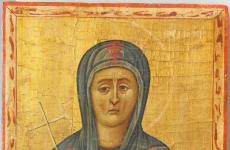Correctional pedagogy training. What is correctional pedagogy, where and how to get an education in this specialty? The advantages of studying at our college on a distance form
This is an area of pedagogy that studies the conditions of education and upbringing necessary for children with various psycho-physical disorders to achieve the highest possible level of personal development, education and readiness for an independent adult life.
The terms "Special pedagogy" and "Correctional pedagogy" are currently used in scientific and social contexts as synonyms to refer to one area of pedagogy.
Correctional (special) pedagogy consists of sections that study the conditions of education and upbringing of children with a certain developmental disorder (deaf and hard of hearing; blind and visually impaired; children with intellectual disabilities; emotional development; functions of the musculoskeletal system; mental retardation, complex structure of disorders) ...
The main task the area of pedagogy that interests us is the development of methodological, theoretical and methodological foundations of systems of special education and upbringing. Within the framework of the existing national scientific tradition, the main values of special education in relation to each age stage are recognized as the child's advancement along the path of normal mental development, prevention and correction of disorders secondary in nature, the level of personal development, education and life competence.
The central problem of correctional (special) pedagogy is the search for ways to resolve the contradiction between the need and the ability of adults to pass on social and cultural experience to the child, since in cases of developmental disorders, traditional methods of solving traditional educational and upbringing tasks cease to function or turn out to be insufficiently consistent. As a result, at each stage of age-related development, the task of developing "workarounds" and specific means of solving traditional educational and educational problems arises.
A problem that is relevant for all areas of pedagogy the relationship between learning and development is an integral and fundamental problem for correctional (special) pedagogy, but its solution becomes much more difficult than in any other area of pedagogy. The biological disadvantage of a child (impaired hearing, vision, central nervous system, etc.) is understood as the primary prerequisite for a violation of his interaction with the outside world, which can cause deviations in mental development, which can be largely prevented and overcome through training, but specially organized training and arranged in a special way. The fate of children depends on how the problem of the relationship between learning and development is interpreted and resolved in the system of special education.
Formation of correctional (special) pedagogy took place within the framework of defectology - an integrative field of scientific knowledge that connects the clinical-physiological and psychological-pedagogical areas of research into the processes of development and education of children. Thus, the genetic and historical roots of correctional (special) pedagogy have determined its closer, in comparison with other areas of general pedagogy, connection with related - medical and psychological - disciplines.
Historically, the first to emerge and began to develop at the beginning of the 19th century were the national deaf pedagogy and typhlopedagogy, in the last quarter of the 19th century - oligophrenopedagogy, and it was from these sections that the formation of the field of pedagogy that interests us began.
Closely related to medical and psychological disciplines, deaf education, typhlopedagogy and oligophrenopedagogy were initially aimed at solving the problems of education and upbringing, cultural development and overcoming his disorders in an abnormal child, normalizing his interaction with the outside world, preparing for an adult and, as far as possible, living an independent life. ... Realizing how significant the divergence of the lines of biological and cultural development of abnormal children is, the founders of Russian deaf-pedagogy, typhlopedagogy, oligophrenopedagogy subordinated their scientific searches and practical work to the task of cultural development and overcoming its disorders in children through special education and upbringing.
The analysis of foreign literature and the practical experience of teaching and upbringing of children with hearing, vision, and intellect impairments, undertaken at this stage, is logical. Characteristic at this time is the desire for creative comprehension (but not direct borrowing) of the methodological, theoretical and methodological foundations of the systems of upbringing and teaching abnormal children taking shape in the West.
Already at the initial stage of its development, correctional (special) pedagogy is aimed at a holistic study of the abnormal child. She is characterized by an understanding of the child's psyche as a living developing system, therefore, the level of mental development detected in a deaf, blind, mentally retarded child and the characteristic complex of his disorders are not perceived by teachers as an inevitable given. This is evidenced by their search for ways and methods of teaching that can lead to overcoming (to one degree or another) secondary disorders of mental development, and to the advancement of the child in development as a whole.
Persistent attempts of teachers-defectologists to overcome the muteness of a deaf person, violations of the spatial orientation of the blind, the social competence of a mentally retarded child are an indicator of their conviction that these disorders of mental development can be overcome through special training and education. Practical achievements in overcoming the consequences of deafness, blindness, mental retardation, the formation of certain knowledge and cultural skills are interpreted by teachers as an achievement in disclosing the share of the potential of children who continue to remain generally unknown and not disclosed due to imperfection of special education.
The level of development detected in a child and the complex of his disorders are comprehended in the projection of the conditions of his education and upbringing. Searches in the field of the content of special education are subordinated at the initial stage to the task of determining the possible and necessary (in the specific socio-cultural conditions of society's life), the level of education of children with hearing, vision, and intelligence impairments and their preparation in special educational institutions for an adult, as independent as possible, life.
Major achievement of the pre-revolutionary stage the creation in Russia by the beginning of the twentieth century of a network of special educational institutions for deaf, blind and mentally retarded children.
At the next stage of development, which correlates with the time of the formation and strengthening of the Soviet state, correctional (special) pedagogy expands the scope of its research and the area of their practical application.
Intensely the theory and practice of speech therapy is developing. The concept “structure of impairment” introduced by LS Vygotsky is comprehended in relation to children with severe speech impairments. An approach is developed and substantiated to the construction of a psychological and pedagogical classification of this category of children, which allows the teacher to clearly imagine the systemic nature and hierarchical organization of violations of the higher mental function, the impact of this violation on the general development of the child. This kind of classification is considered as a tool necessary for a speech therapist to build a systemic correction of impaired function in the context of the general development of the child. Approaches to the systemic correction of speech disorders, different in their etiology, nature, severity and time of occurrence, are being developed.
The problem of studying the processes of development and learning of children with partial dysfunction of the auditory analyzer (hearing impaired) is considered in the context of Vygotsky's cultural-historical theory and is initially posed as a problem of understanding the qualitative originality of the development of children "with a partial defect" as a common problem for correctional (special) pedagogy , necessitating the construction of a qualitatively different system of their special education and upbringing.
It has been proven that the developmental picture of a child with partial hearing impairment is qualitatively different from the developmental picture of a deaf child. A psychological and pedagogical classification of children with hearing impairments is being developed, which determines the need to differentiate the systems of teaching deaf and hard of hearing children. A hypothesis is put forward about the similar complexity and qualitative uniqueness of the picture of the development of a visually impaired child in comparison with a blind one, and, accordingly, about the need for qualitative differences in their education and upbringing.
With the accumulation of successful experience in the development and teaching of "abnormal" children, the leading role of special education in the development of a child becomes more and more obvious for teachers-defectologists. The tradition of assessing the level of development detected in a child and the complex of his disorders in the projection of the conditions of his education and upbringing is being strengthened.
In the late 50s - early 60s. The Soviet system of special education covers not only children with hearing impairments (deaf and hard of hearing), vision (blind and visually impaired), mentally retarded, children with severe speech impairments, but also children with musculoskeletal disorders, mental retardation.
Major achievement of the Soviet period was the development of scientific and methodological foundations of a differentiated system of special education for abnormal school-age children. Eight types of special schools were created (for the deaf, hearing impaired, blind, visually impaired, mentally retarded, children with speech impairments, mental retardation, disorders of the musculoskeletal system); sixteen types of special education have been developed. Special preschool institutions arose, as well as educational institutions in which graduates of special schools could receive further general and vocational education. For each category of children studying in a special educational institution of the corresponding type, principles, tasks, content of education, forms of organization of the educational process were determined, methods, techniques and means of pedagogical influence were developed.
The achievement of this period is development of special didactics teaching "abnormal" children, which determined the need for: setting correctional tasks and developing specific sections of the content of education that are not present in the educational programs of normally developing children; creating "workarounds" and the use of specific training tools; individualization of training; special organization of the educational environment; expanding the educational space outside the educational institution; prolongation of the learning process; the need for interaction between specialists of different profiles participating in the training process, etc.
In the culture of special education, the principles of variable instruction of the child and the sequential complication of instruction are taking root; ensuring speech and visual levels of solving the same educational task with the ability to move from one level to another; multiple variability of the types of exercises of the same type; the principle of increasing the complexity of the material for solving an educational problem in one parameter; the minimum "step" size when moving from one difficulty level to another; building a system of educational tasks, taking into account the possibility of mastering them from the lowest level, building a system of assistance at each stage of solving an educational task, etc.
Correctional (special) pedagogy accumulates experience in the development of effective "workarounds" for the development of children with sensory impairments. Early (from 2–3 years of age) teaching deaf children to read and write is used as a “workaround” for the development of their verbal speech; teaching a deaf child to regulate the substitution of incorrectly pronounced or not yet delivered sounds makes it possible to "bypass" his limited pronunciation abilities and not restrain the development of oral speech. Dot-relief Braille continues to be used in teaching a blind child to write and read, which makes it possible to "bypass" the limitations in the development of reading and writing, caused by deep visual impairment, etc.
Searches in the field of the content of special education for abnormal school-age children were carried out in the conditions of the need to comply with the Law on universal education, the orientation of the state towards the qualification nature of special education and the deep conviction of teachers-defectologists that the potential of the abnormal child in the development of cognitive activity and verbal speech is extremely high. ... The availability of general education for an abnormal child, his achievements in the development of cognitive activity and verbal speech begin to be understood at this time as the main value of special education.
The efforts of the researchers were aimed at solving a unique problem that was not set before pedagogy in any other country in the world - to prove the possibility of abnormal children receiving an education comparable in level with the education of their normally developing peers. First, this problem is solved in the volume of primary, then - incomplete secondary, and, finally, - complete secondary education of "abnormal" children, with the exception of the mentally retarded and children with a complex structure of disorders.
It is natural that the main attention was paid to the methods of developing cognitive activity and verbal speech, the development of private methods for the formation of school-related skills that provide the opportunity to obtain qualification education, the creation of pedagogical technologies for the prevention and correction of mental development disorders of a secondary nature.
Thus, by the end of the 70s. - the beginning of the 80s. scientific research and practical work of the majority of teacher-defectologists working with school-age children turn out to be subordinate to the task of qualifying education for abnormal children, the level and volume of which in the USSR by that time was much higher than in other developed countries. At the same time, the practical desire to provide students of special schools with a level of general educational ("academic") knowledge comparable to their normally developing peers, naturally led to the relegation of the most important tasks of personal, social and emotional development and correction of its disorders in children at all stages of school age. ...
At the same time preschool correctional (special) pedagogy and deaflopedagogy, not bound by qualifications, direct their scientific search and practical work towards solving the problem of the maximum possible development of the child, normalizing his interaction with the world around him. It is in preschool special (correctional) pedagogy that the original value orientation of special education and upbringing on the cultural development of the child, the prevention and correction of secondary disorders, the normalization of his relationship with the outside world, and the personal formation of the preschooler are fully preserved. The development of scientific and methodological foundations for systems of special education and upbringing of preschool children with various developmental disorders is built in accordance with these value orientations.
Research results and practical achievements preschool correctional (special) pedagogy of the Soviet period made it possible to rethink the concept of “timely” beginning of special education and significantly changed the ideas about the potential development and education of an abnormal child. It is now considered timely to start special education for a child from the age of two to three, and for mentally retarded children - from the age of 4. It has been proved that, provided that the preschooler's special education is timely and adequate, it is possible to ensure the amplification of his development, the achievement of a higher level of general development and the correction of violations of a secondary nature. Preschool special pedagogy proves the need to control the progress of a child along all lines of development in the process of his special education.
Deaflopedagogy made a significant contribution to the development of the theory and practice of special education for a child with severe developmental disorders in relation to the early stages of ontogenesis, which had a positive impact on the development of all preschool correctional (special) pedagogy.
The largest achievement of modern preschool correctional (special) pedagogy is the development of scientific foundations for the early (now from the first months of life) identification of children with suspected developmental abnormalities, the foundations of early differential diagnosis and a system of special education, which allows achieving a qualitatively different level of mental development and correction of its disorders in children at the early stages of ontogenesis.
Historical and genetic roots of correctional (special) pedagogy determined the sustainability of the tradition of developing systems of special education and upbringing based on scientific ideas, which are formed due to the integration of data from clinical, physiological and psychological and pedagogical areas of research into the processes of development and education of each category of children. An example of the development of this tradition is the development of an approach to early special education and upbringing of children with hearing impairment, which for the first time allows to provide some children with a level of general development as close to the age norm as possible and the introduction of the development of verbal speech into a normal channel. The development of the theoretical foundations of this approach is based on the integration of data on the role of sensory deprivation in the mental development of the child; sensitive periods of the formation of higher mental functions; the leading role of learning in child development; the basics of special didactics; ideas about the resolving capabilities of modern hearing aids and the role of early hearing aid.
Results and prospects This area of research in preschool correctional (special) pedagogy determines the need and makes it possible to rethink the structural and functional organization of the entire system of special education on the basis of building a new basis - a system of early detection and early complex correction of impaired functions in the context of the general development of children.
In general, we can conclude that the main task of the current stage is to provide scientific support for the transition to a new type of special education system, focused on the values of an open civil society.
The priority areas of research are:
- creation of scientific foundations for a system of early (from the first months of a child's life) detection of violations in the development of children and a flexible system of early comprehensive (medical, psychological and pedagogical) assistance;
- development of scientific foundations for integrated education and new forms of interaction between mass and special education;
- rethinking the relationship between educational standards and life competence in the system of special school education, which determines the new content of special education;
- development of methods and technologies for high-quality individualization of special education;
- development of a concept that determines the role and function of computer technologies in solving the central problems of correctional education;
- development of the content and methods of psychological support for children with various developmental disabilities in the process of education;
- development of technologies for interaction of specialists of different profiles participating in the education process;
- development of the content and methods of interaction of specialists with a family raising a child with developmental disabilities.
Correctional (special) pedagogy, which has accumulated in the process of its historical development invaluable experience in the development of differentiated systems of special education for different categories of children, is faced with the task of its holistic systemic comprehension. One of the key and playing a special role in strengthening the integrity of modern correctional (special) pedagogy as a field of scientific knowledge is the concept of "child with special educational needs." The development of this concept opens up the possibility of proactive design of a general model of a new type of special education system, on the basis of which it is possible to design ways of its implementation in relation to teaching different categories of children that were not previously covered by the special education system, as well as to improve previously created systems.
What is correctional pedagogy
Correctional pedagogy dates back to 1929, when V.P. Kashchenko published his work "Therapeutic (correctional) pedagogy". From that moment on, a direction arose in teaching children with learning difficulties. The very same term "correctional pedagogy" appeared much later, in 1988, it was introduced into circulation by G.F. Kumarina - Doctor of Pedagogical Sciences, Professor.
Remark 1
Correctional pedagogy, or as it is customary to say special pedagogy, is a field of pedagogical science, which sets itself the task of studying and forming the conditions for teaching and educational activities in relation to children with various mental and physical disabilities so that these children can achieve the maximum possible for their states of personality development, education and independent life.
Correctional pedagogy teaches children from the following categories:
- hearing impaired or impaired
- blind or severely visually impaired
- children with intellectual disabilities
- children with emotional development disorders
- children with impaired ODA function
- children with mental disabilities
Corrective pedagogy studies and develops methods that will be effective in teaching these children and adapting them to everyday life.
The objects of modern correctional pedagogy are various kinds of situations in which there is a likelihood of the child's defective development, disorders in the adaptation process, when the child cannot adapt to the social environment, situations when the child has social, mental and school inability.
Who is a correctional teacher
Work with children who have mental, physical, intellectual and other impairments is carried out by such a specialist as a correctional teacher (or otherwise a defectologist). The peculiarity of these children is that they need not only help in learning, development and upbringing, they also need treatment. A child with whom a correctional teacher is engaged could be born with similar disorders, or these disorders can be acquired.
The correctional teacher is faced with a number of very important tasks, on the implementation of which the future of these children largely depends. First, a correctional teacher must exercise pedagogical control over his wards. When planning teaching and educational goals and objectives, he must take into account the individual characteristics of each student. It is extremely important that the teacher can assess the process of educational and educational activities, if necessary, make adjustments.
The teacher must be able to interact not only with children, but also with their parents - thanks to joint work both in a correctional institution and at home, it will be possible to achieve better results.
For the favorable development of children with learning difficulties, it is necessary that an appropriate subject-developing environment be created in the lesson. The teacher should use those teaching aids that can improve the effectiveness of the class.
The wards of the correctional teacher are children with completely different impairments. A correctional teacher works with children suffering from:
- deafness
- blindness
- autistic
- Down syndrome
- hyperreactivity
- attention deficit disorder
- Cerebral palsy, etc.
Remark 2
Usually, a correctional teacher specializes in one or several areas, most often he also has an additional specialty that helps him to carry out his activities.
Professional and personal qualities of a correctional teacher
The personality of a teacher consists of several mandatory elements:
- professional qualities
- competence
- personal qualities
The remedial educator plays a special role in the lives of children with learning difficulties. For such children, a teacher is a "window" into the world of the new, unknown, and exciting. That is why a teacher who works with correctional children should, first of all, be a friend and helper for such children.
The success of pedagogical activity in relation to such children attending a correctional school largely depends on the personal qualities of the teacher himself. A correctional teacher, first of all, must have the following set of qualities necessary in his work:
- kindness
- love
- respect
- tact
- honesty
- Justice
- initiative
- activity
- confidence
The teacher must pursue humanistic ideals, for him his wards are the same successful people, like everyone else. It is important that the correctional teacher always monitors his own psycho-emotional state, as it directly affects the mental and intellectual state of students.
Working with special children is extremely difficult. The behavior of children can sometimes shock an unprepared person, therefore a correctional teacher must show patience and tact in working with children, must master the situation.
It is necessary that the teacher plan his activities in stages, set feasible tasks for children, which will contribute to their development.
Scientists have developed a number of requirements that a correctional teacher must meet. When working, the teacher must:
- take into account the whole socio-biological picture of the child
- have both sufficient theoretical knowledge and practical skills
- love and impress children
- organize extracurricular activities for children
- distribute feasible responsibilities between children
- plan class collaboration
- use visual material
- develop creative and analytical thinking in children
- use our own diagnostic and control systems
- to teach children to independent cognitive work
- teach children self-control and self-development
- take into account the personal interests of children when planning educational and upbringing activities
- find a common language and productively interact with children with different abilities
- make adequate demands on their pupils
- present teaching material in an understandable way
The teacher should not be too nervous and excitable, should not show negative emotions.
Currently, the number of children with developmental disabilities is growing steadily. If you do not notice the problem, or think that over time everything will level out, then the situation will only get worse. If you turn to a specialist in time, then the child will master the skills necessary for learning at school.
We are talking about children with delayed mental and speech development, with intellectual disabilities, with attention deficit disorder, etc. Such categories of children need a special approach to education, behavior correction, and training.
A correctional teacher is a specialist who works with children with special needs in physical and mental development.
The main activities of a teacher-defectologist:
- diagnosing the problem;
- correctional and developmental classes, taking into account the age, individual and psychological characteristics of your child;
- assistance in raising a child;
- social adaptation.
This profession is based on understanding the uniqueness of children with developmental disabilities, striving for their development and socialization. With special knowledge, the correctional teacher helps parents cope with the difficulties in raising and teaching children.
Most often, parents find deviations in the development of the child when entering kindergarten or school. Then they begin to work intensively with a defectologist, speech therapist and psychologist. But, having started correctional work at the age of 6-7, it can be very difficult to make up for lost time, sometimes almost impossible. After all, up to 3-5 years, the compensatory capabilities of the brain are very great. If the corrective action is started at an early age, the problems can be solved completely, or at least many possible secondary deviations can be avoided.
A specially prepared environment has been organized for classes in our center, a large number of developmental materials have been collected.
In the classroom, the following correctional and developmental work is carried out:
- increasing cognitive activity and the development of basic mental processes in children (perception, attention, memory, thinking and speech);
- learning to play;
- development of speech based on familiarization with the surrounding world;
- visual activity: modeling, drawing, design;
- teaching to read and write.
The rest of the disciplines can vary and be selected taking into account the individual characteristics of the child.
Educators work closely with the family. The parents of the smallest children are present in the classroom. This allows them to ask all the questions of interest and track, under the guidance of a specialist, the progress of the child, his success. In addition, the work of a correctional teacher is aimed at teaching parents the basic techniques necessary for self-study with a child at home. Only in this case is it possible to achieve significant results.
If you have even the slightest doubts about the development of your baby, you need the advice of a professional correctional teacher and, of course, a specialist doctor. In our center you can always get answers to all your questions. 
The specialists of our center will help you:
- determine the presence or absence of a problem;
- develop an individual training program for your child;
- get advice on how to conduct classes at home.
Classes in our center are held at a time convenient for you and your child, in a comfortable, friendly and cozy atmosphere of support and attention.
Many people believe that remedial pedagogy is pedagogy aimed at correcting children with difficult behaviors. People call them "neglected" or children from disadvantaged families. But for a long time already, correctional pedagogy in primary education has acquired other directions. But let's figure it out.
What is a correctional educator?
The specialty "Correctional Pedagogy in Primary Education" is aimed at helping children with disabilities and impaired intellect in teaching. It can be both congenital and acquired diseases.
Such children are trained in a certain correctional institution, where correctional teachers work. They weaken or replace developmental deficiencies.
The tasks of the correctional teacher include:
- Exercise pedagogical control.
- Plan the goals and objectives of the lessons, focusing on each child.
- Evaluate the process and results of activities.
- Conduct pedagogical diagnostics.
- Work with parents of children.
- Select a program taking into account the characteristics of the class.
- Create a subject-developing environment in the office.
- Write reports for each child.

Who does the correctional teacher work with?
Answering this question, it is easier to say with whom the correctional teacher does not work. Children with autism, Down syndrome, attention deficit hyperactivity disorder, musculoskeletal disorders, as well as visually impaired and hearing impaired. Therefore, going to study for the specialty "Correctional pedagogy in primary education", people often receive several additional specialties. This profession allows you to constantly be in the process of studying, since there are so many branches of correctional pedagogy.

Where to study?
The correctional teacher is taught in technical schools, colleges and universities. If a specialist already has it, he can take courses to improve his qualifications. When choosing such courses, be guided not by the price, but by the fact that you are taught to study according to the Federal State Educational Standard.
Correctional pedagogy in primary education is not an easy profession. She needs not only a certain character, but also a sense of vocation to the profession. And although before going to college or university, teenagers do not think about how their professional life will develop in the future, there are a number of scientific books that can help determine the choice of a profession.
Where to start learning?

In it you can find information:
- On the foundations of pedagogy and its specific area - special (correctional) pedagogy.
- About school maladjustment.
- On educational relations and the organization of correctional and developmental education.
- About pedagogical diagnostics.
- On the main directions of correctional pedagogy.
- About the development and improvement of spatial representations, coordination of movements of the hands and fingers, visual perception.
The book consists of a whole introductory course, which, in addition to the above, tells about everything that a specialist may encounter.
Methods in Correctional Pedagogy
Corrective pedagogy in primary education is based on several specific methods.
- The method of conversation or the method of collecting psychological and pedagogical data through the communication of the teacher with the child. At the same time, much depends on the teacher's ability to create an emotional and psychological atmosphere suitable for the child. During the conversation, the teacher not only interprets words, but also non-verbal signs. Such a method in correctional pedagogy is suitable only for children with developed speech functions.
- This method is divided into several different ways at once. The child can be observed, being included in the process of his activity, or vice versa, standing aside. You can do it openly or, on the contrary, closed, using the Gisella mirror. Usually the teacher keeps a plan of his observations, writes down feelings and thoughts, and then analyzes the material received. However, there are also disadvantages to this method - each person interprets what he sees according to his own standards.
- Questionnaire method. The most standard and common method. Primary school children are not always able to fill out a questionnaire, so it is not suitable for every type of institution and not for every child.
- The method of the pedagogical experiment. к This method uses personal data, conversations, observations and much more. Establishing relationships and patterns is the main goal of this method.
- Method and anamnestic information. With this method, a diagnosis is made and a diagnosis is made on the basis of his medical history. The study also includes looking at crafts, school notebooks, and more that the child did.
- A method of studying documentation. For each and the schools keep a certain dossier. It is according to him that correctional teachers can, after analyzing, draw conclusions.
These are the simplest and most well-known methods. However, there are more serious methods, such as the PMPK (psychological, medical and pedagogical council), where absolutely all information received by psychologists, speech therapists, parents, social workers, correctional teachers and doctors is collected and processed. The purpose of this method is to draw up an individual development plan for the child.

Some statistics
Despite the demand for the specialty "Correctional Pedagogy in Primary Education", the salary is quite low in the regions of Russia. With the crisis, the situation has worsened. Based on statistical data, salaries in Moscow fell from 40 to 30 thousand rubles. But the demand for correctional teachers did not fall, and there are quite a lot of vacancies. The same demand can be observed in the Leningrad Region and in the Altai Territory.
The highest salaries are in the Moscow region and the Republic of Tatarstan - 32.5 thousand rubles each. Slightly lower is the Leningrad Region with a salary of 30 thousand rubles. And it closes the top 5 Astrakhan and Kemerovo regions with wages of 18 and 16 thousand, respectively.
However, when choosing whether to enter a university with a degree in Corrective Pedagogy in Primary Education or not, you should focus not only on salary and demand in your region - more important is whether you want to devote your life to this!






